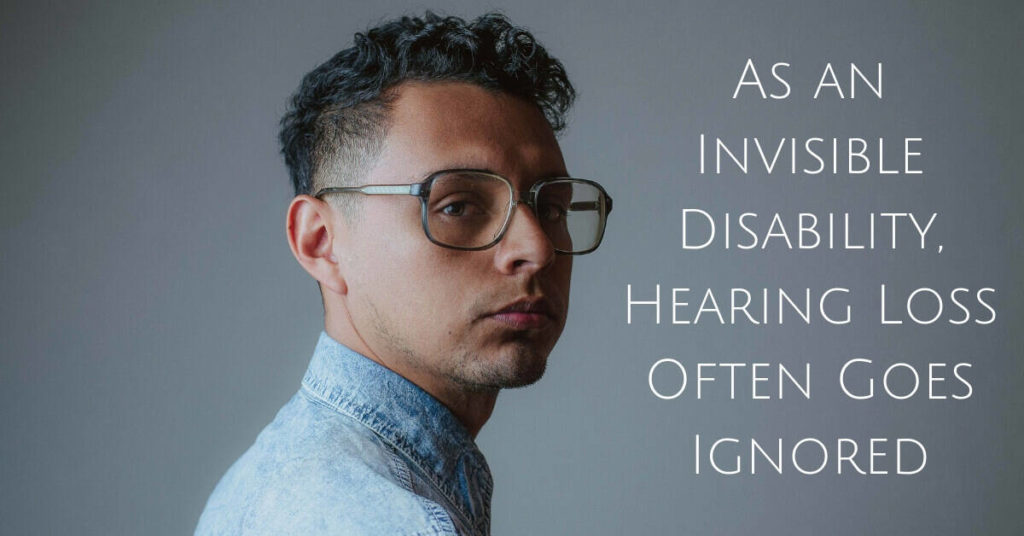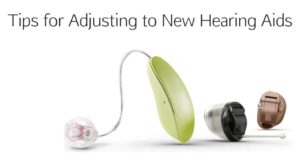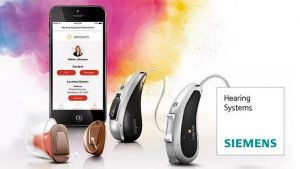This article reviews some of the issues regarding untreated hearing loss and the Benefits of Hearing aids.
Hearing loss and cognitive decline
Hearing loss doesn’t just affect our ears. Evidence links it to other, sometimes more significant health issues like falling and dementia.
Social isolation is an obvious concern. Hearing loss can give those that are speaking to us the impression that you’re not interested in the conversation, Those with untreated hearing loss begin to withdraw from social activities that keep them in touch with others and that self imposed isolation can lead to loneliness and depression.

Left untreated, hearing loss may be a sign of dementia. A classic feedback loop: Cognitive decline makes it harder to understand what you hear, and hearing loss puts a burden on your cognitive abilities, leading to negative changes to the brain. Isolation, loneliness and depression feed into this loop as well. Loneliness increases your risk of dementia by as much as 40%, and may even be a symptom of early brain changes, as suggested by a small brain scan study.
Catching hearing loss early is important. If you can hear sounds at 25 decibels, about a whisper, that is considered normal hearing. But even slight hearing loss could be linked to cognitive decline, according to 2019 Columbia University research. In fact, a significant link to was determined for cognitive decline for every 10 decibels of hearing loss and most dramatically for those who only were just 10 decibels below perfect hearing.
Middle age could be a turning point. A 2019 study of more than 16,000 Koreans recently diagnosed with hearing loss over a ten year period, hearing loss emerged as a significant risk factor for dementia, and most strongly in people ages 45 to 64.
Hearing loss affects mental health

The effect of hearing loss on your social life and mood may creep up on you, especially if you can’t understand speech in noisier environments. For those younger than age 70, every decibel drop in hearing raises the risk of being severely lonely, a Dutch study found. Not wearing hearing aids is a risk factor for loneliness in other research. And there is a bit of evidence that getting a hearing aid can prevent loneliness from deepening over time. The key is how you feel. One person might not socialize often but feel rich in friendship and others may look popular to outside observers, but feel lonely inside. Either way, hearing loss can affect how other people perceive you.
Less psychological distress for hearing aid wearers
A study of more than 25,000 adults, data indicated that people with hearing loss were more likely to say they use antidepressants and antianxiety medication as well as mental health services. Hearing aids seem to help: Among those who had moderate hearing loss, more than 77 percent reported psychological distress, compared to 23 percent of those with hearing aids.
Modern hearing aids relieve the strain of hearing loss. With the newer digital hearing aid technology offering more clarity (less strain and more clear hearing).
When you are fit with new hearing aids, you should experience the following:
An improved ease in hearing environments, such as watching television and in conversations. Many times, sounds like footsteps, clocks ticking, computer fan noise, and refrigerators humming, could seem unusually loud when first wearing hearing aids. This is normal. The ability to tune out these insignificant environmental sounds will improve as your brain acclimates to hearing them.
Less issues in understanding speech in noise. Loud noise is still going to create a difficult hearing situation, even with hearing aids or for that matter, normal hearing individuals. Hearing aids with dual microphones and directionality technology is very important in these situations.

The wearing of properly selected and professionally fit hearing aids can provide much needed help with communication, but the process does require a period of adjustment on the part of the wearer. Remember, in most cases, it took many years to acquire your hearing loss. It can take up to several months for the brain to accept and acclimate to new better hearing.
Knowing what to expect can help with your adjustment process. We encourage you to be patient with yourself and work with your HearSource hearing aid team. Remember, all follow-up sound adjustments are provided to you at no additional charge via our Remote hearing aid programming technology.
Who benefits most from hearing aids?
You and everyone around you. Approximately one-third of adults 65 years old or older suffer from age-related hearing loss (presbycusis). This type of hearing loss happens gradually over time (often many years) that many don’t notice until it becomes a serious problem.
Many times family and friends will have to repeat themselves and raise their voices in order to communicate with you, which is a source of frustration for everyone. Many of our clients remember thinking that everyone was “mumbling” or “not speaking clearly”. Most often, your hearing loss is the problem… not the speaker’s voice.
There are many causes of age-related hearing loss. Most commonly, it arises from changes in the inner ear as we age, but it can also result from changes in the middle ear, or from complex changes along the nerve pathways from the ear to the brain. Certain medical conditions and medications may also play a role.
Hearing aids can’t restore hearing to normal levels in every situation. But they are most often a great help communication with those around us.
Benefits of wearing two hearing aids
It is acceptable to wear one hearing aid if you suffer hearing loss in only one ear. Otherwise wearing two hearing aids is highly recommended.
We have two ears for a reason. What comes in the left ear is routed to the right side of the brain, and what comes in our right ear is routed to the left side of the brain.
When you have hearing loss in both ears, it can be very confusing to the brain if we only correct the hearing in one ear. The non-corrected ear is still sending unclear signals to the brain.

Two hearing aids provide the following benefits:
Sound localization is a listener’s ability to identify the location or origin of a detected sound in direction and distance. Our auditory system uses several cues for sound source localization, including time difference and level difference (or intensity difference) between the ears, and spectral information.
We really hear with our brains. When sound arrives, it bounces off the outer ear (pinna) and concha, and enters the ear canal. Sound waves then travel down the ear canal and and contacts (vibrates) the ear drum (tympanic membrane), causing the three attached tiny bones of the middle ear to also vibrate.
This vibration or energy is then transferred from the middle ear to the oval window and on into the inner ear (cochlea). In the cochlea, that energy is changed into an electrical signal by hair cells in the organ of Corti, and forwarded on through the cochlear nerve into the brain.
Hearing better in noisy situations. With the introduction of hearing aids with dual microphones, much of the interfering background noise can be reduced. This technology is especially helpful if the hearing aid user is wearing two hearing aids.
ALL hearing aids from HearSource have dual microphone technology.
Ready to get help?
The bottom line: If you suffer from hearing loss, evidence strongly indicates that wearing hearing aids can improve the quality of your life and health in many ways, beyond only helping you hear better. If you already have a hearing test, great, submit it to info@hearsource.com for our review.
HearSource.com offers some of the best hearing aids available from the worlds leading hearing aid manufacturers, at very affordable prices. We offer exceptional remote customer service for the entire life of your hearing aids at no additional charge.
For more information on hearing aids, please use the chat button, or email us at info@hearsource.com or call 1-800-416-2434, Monday thru Friday, 9:00 a.m. to 9:00 p.m. Eastern Time (6:00 a.m. to 6:00 p.m. Pacific Time) USA.




